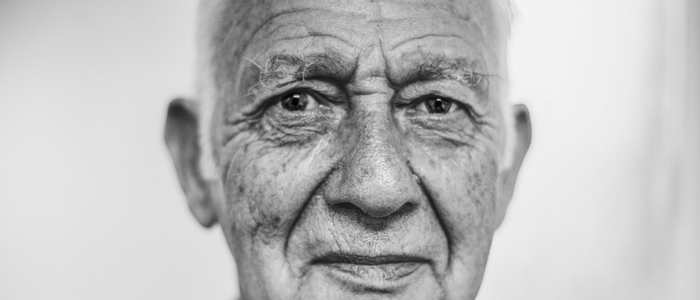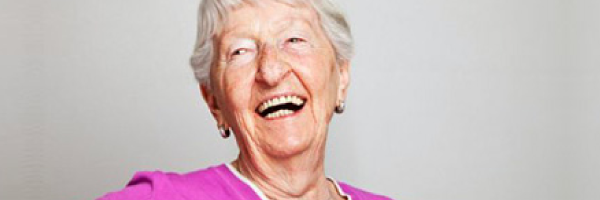Third Age: Fighting everyday ageism
Posted on 1st June 2017

‘Come Dine With Me’ is a Channel 4 reality show which invites five individual strangers or three couples to host a home-cooked meal, score each other, with the most popular evening winning £1,000stg. As well as a heavy dependence on dauphinoise potatoes and raspberry sorbet, (not in the same dish), the programme reveals a pervasive and often unconscious mutual ageism. The group varies in age; often a minority of older diners or couples sit down with a predominantly younger group.
Time and again, each group anticipates the quality of the meal based on the host’s age, with younger diners having low expectations of older cooks and vice versa. Younger cooks expect older fare will be ‘homely’ or ‘a Sunday dinner’ rather than fine dining, while oldsters decide that youthful hosts won’t know their broth from their bourguignon and that their offal will be awful.
In fact, winners and losers are of all ages. Some older people starring are a whizz in the kitchen, while others are more of a swizz.
The series exhibits an almost casual ageism – demonstrating yet again how each generation dismisses the other, or lumps it as a homogenous group, overlooking the range and variety of individuals in every age.
The experience of Third Age suggests that bringing different age groups together with a common focus benefits everyone. Third Age responds to the opportunities and challenges of ageing in Ireland, partly by demonstrating the value of older people remaining engaged and contributing in their own community.
The programme is just one small example of the way we view each other on either side of the age divide. It seems to illustrate that - outside family groupings - younger and older people don’t seem to socialise, thereby, perhaps, creating stereotypical views. So what can we do to encourage the generations to meet, and would more mingling lead to more real knowledge and understanding?
The experience of Third Age suggests that bringing different age groups together with a common focus benefits everyone. Third Age responds to the opportunities and challenges of ageing in Ireland, partly by demonstrating the value of older people remaining engaged and contributing in their own community. For example, Third Age‘s national programme, Fáilte Isteach, supports the integration of migrants into their local communities. An added bonus is that the tutors are mainly older people, with migrants tending to be in their 20s or 30s. So as well as working together on words, sentences, verbs and nouns, there is a real inter-generational meeting in which people can learn about each other across the decades as well as across the continents.
Third Age programmes welcome older people and train them as volunteers to deliver our programmes. This adds to the older skill set and illustrates that we are never too old to start something new. Third Age now has over 1,200 volunteers, providing positive role models for others in their age group, and to thousands of younger people.
The digital divide is often used to describe the difficulties experienced by older people who are not so technically literate in an increasingly IT-savvy world. In response, Third Age plans to develop a digital hub to address the IT needs of older people.
170 of these older volunteers who work on Senior Help Line, another Third Age programme, would say that this role has helped them transition into retirement while giving the opportunity to contribute to community life. Senior Help Line, a national listening service for older people, received over 20,000 calls in 2016, and many callers tell us we are their lifeline.
In 2016, Senior Help Line began to reach out directly to young people. The Student Support Line, a partnership between Third Age and DCU, has trained a group of help line volunteers to support the mental health needs of third level students via a confidential telephone service. This project is currently running as a pilot.
The digital divide is often used to describe the difficulties experienced by older people who are not so technically literate in an increasingly IT-savvy world. In response, Third Age plans to develop a digital hub to address the IT needs of older people. The aim is to ensure that older people continue to participate fully in a digitalised society without suffering discrimination. Stage one of this initiative is a Digital Skills for Citizens programme, in which Third Age is tasked to train 1,000 older people in basic digital literacy. This will be followed up with research on various technologies that will benefit older people, including mobile health screening, assisted living technologies and increased connectivity.
...AgeWell is a new model of elder care, combining peer-based social engagement and mobile technology to improve health outcomes for older people.
Third Age has invested in other new programme development to provide an evidence-based response to the changing needs of a growing ageing sector. For example, AgeWell is a new model of elder care, combining peer-based social engagement and mobile technology to improve health outcomes for older people, support them to live longer in their own homes and communities and drive down the costs of long-term care. The model has already been successfully piloted in South Africa and New York. Third Age, in partnership with AgeWell Global, will deliver a pilot of this programme in Ireland in 2017.
Finally, last year, Specsavers in partnership with Third Age decided to mark the unique relationship often celebrated between generations by launching the first National Grandparent of the Year Award. Nominations were submitted by grandchildren of every age, and the winner was Moya Connolly, 94, nominated by her granddaughter, Hannah, to whom we will give the last word. ‘Nana has been one of the most inspirational people in our lives. If she’s taught us anything, it is that you should never be afraid to try something new. Over the last 94 years of her life, she’s worked as a nurse, travelled the world and helped make sure we turned out ok. She’s also the best jam and fruitcake maker I’ve ever met,’ says Hannah.


